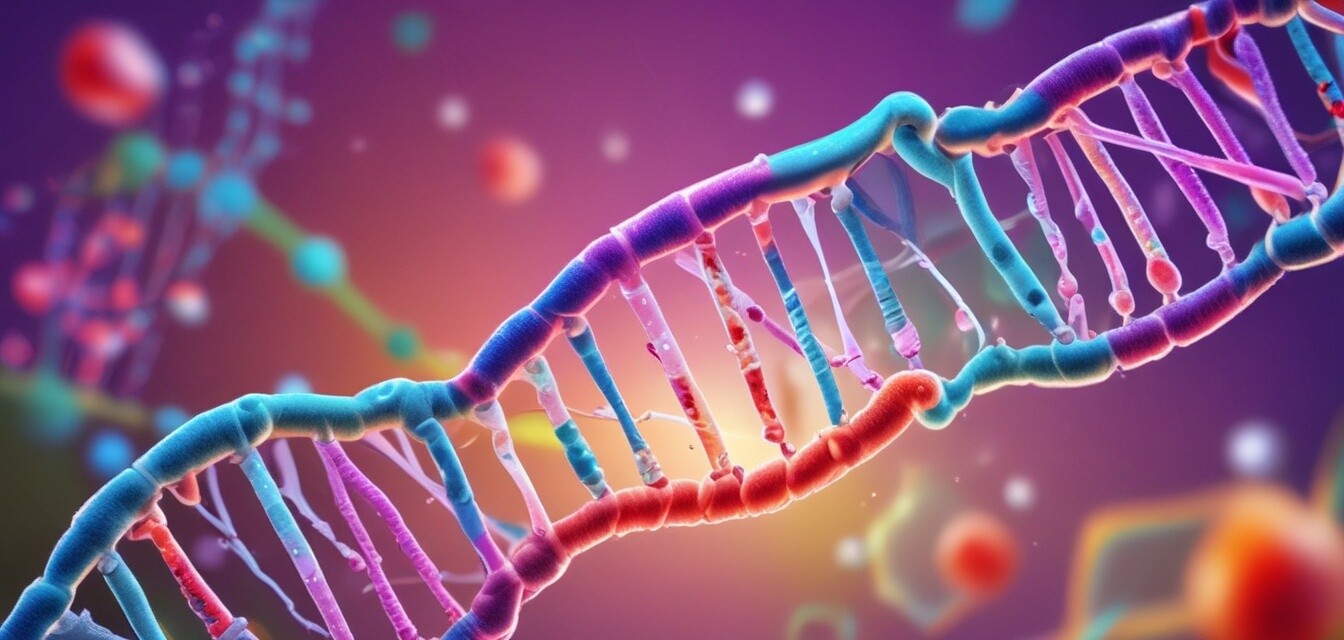
The Role of Folate in DNA Synthesis and Repair
- Folate is essential for DNA synthesis and repair.
- Proper levels of folate support fetal development during pregnancy.
- Folate-rich prenatal vitamins can aid in providing necessary nutrients.
- It's crucial for expecting mothers to monitor their folate intake.
- Understanding the role of folate can help inform prenatal nutrition choices.
Folate, a B-vitamin, is a critical nutrient for pregnant women. Its prominence in prenatal vitamins comes from its significant role in DNA synthesis and repair. This article delves into how folate supports fetal health and development and highlights its importance in prenatal nutrition.
What is folate?
Folate is the naturally occurring form of Vitamin B9, found in various foods such as leafy green vegetables, beans, and fortified grains. It’s essential for producing DNA, RNA, and proteins, making it a key player in cell division and growth.
Understanding DNA synthesis and repair
DNA synthesis is the process through which new DNA is created, while DNA repair refers to the mechanisms that fix any damages to the DNA structure. These processes are crucial during pregnancy when rapid cell division occurs as the fetus develops.
The connection between folate and DNA
Folate aids in the production of nucleotides, the building blocks of DNA. Here’s how it contributes significantly to DNA synthesis:
| Process | Role of Folate |
|---|---|
| Nucleotide formation | Folate is necessary for converting homocysteine to methionine, which is used to create nucleotides. |
| Cell division | Folate supports the rapid cell division necessary for fetal growth. |
| DNA repair mechanisms | It assists in repairing damaged DNA, which is critical for healthy cell function. |
Why is folate crucial during pregnancy?
During pregnancy, the demand for folate increases significantly due to the growth and division of cells in both the mother and fetus. Adequate folate levels can help:
- Support healthy fetal development.
- Reduce the risk of certain birth defects.
- Promote overall maternal health.
Sources of folate
While folate can be obtained from food sources, many women find it beneficial to supplement their diet with prenatal vitamins. Some excellent sources of folate include:
- Leafy green vegetables (spinach, kale)
- Legumes (lentils, chickpeas)
- Citrus fruits (oranges, grapefruits)
- Fortified cereals and grains
Folate-rich prenatal vitamins
Choosing a prenatal vitamin that contains folate can provide the necessary nutrients for optimal health during pregnancy. To explore different options, feel free to check our sections on essential prenatal multivitamins and subscription-based vitamin services.
Pros
- Supports DNA synthesis and repair.
- Essential for fetal development and growth.
- Can help reduce the risk of certain birth defects.
- Widely available in various food sources and supplements.
Cons
- Excessive intake may cause potential complications.
- Some may find it difficult to meet dietary requirements through food alone.
- Not all prenatal vitamins contain sufficient levels of folate.
Monitoring folate intake
Monitoring folate intake is crucial for expecting mothers. They should strive to consume a balanced diet rich in folate while considering prenatal vitamins as a complement. It’s essential to speak with a healthcare provider to determine the appropriate dosage based on individual health needs.
Tips for optimal folate intake
- Include folate-rich foods in your daily meals.
- Consult with a healthcare professional for personalized recommendations.
- Consider fortified cereals or supplements if dietary intake is insufficient.
- Stay informed on the latest prenatal health news by visiting our News and Trends section.
Conclusion
Folate plays an essential role in DNA synthesis and repair, particularly during pregnancy when fetal development is at its peak. Understanding the significance of this vitamin can guide expecting mothers in making informed choices about their prenatal nutrition. Always consult with healthcare providers for tailored advice and to ensure optimal nutrient intake throughout pregnancy.
